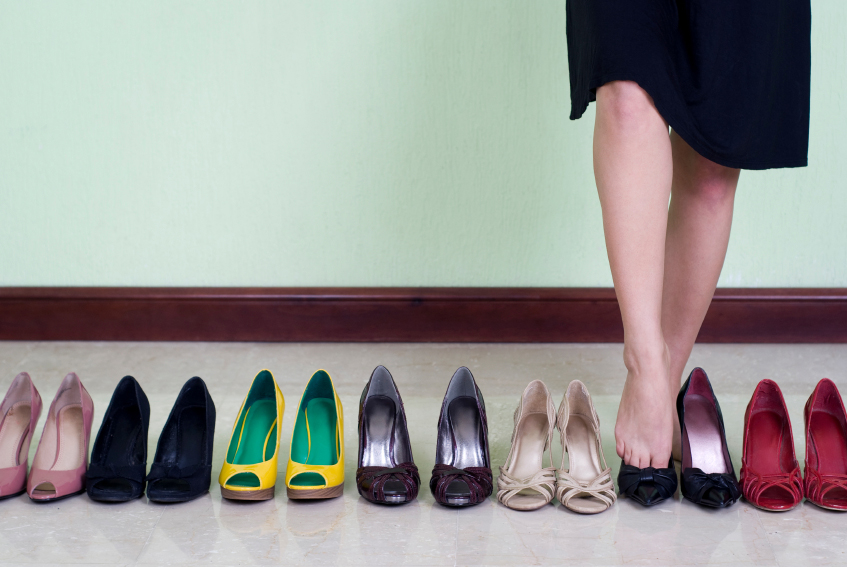Whether you like to go footloose in flip-flops or make strides in stilettos, you could be putting your feet at risk for injuries. According to the American Academy of Orthopaedic Surgeons, 90 percent of women wear shoes that are too small for their feet.
“Ill-fitting shoes can make walking difficult, increase the risk of falls or other accidents, and lead to foot problems,” said Dr. Scott Corpe, a foot and ankle specialist at Augusta University Orthopaedics.
Wearing shoes that are too tight can cause painful bunions or bunionettes, which could require surgery if they become severe, as well as blisters, corns, calluses and hammertoes.
If the shoe doesn’t fit
Shoes don’t need to be “broken in” – they should be comfortable when you try them on at the store. Try these tips when shopping for shoes:
- Shop for shoes in the evening. Feet naturally swell and become larger during the day. Also, bring along a pair of socks appropriate for the activities you will be doing in the shoes you are trying on.
- Fit new shoes to your largest foot. Most people have one foot larger than the other.
- Get measured. The size of your feet change (usually becoming wider) as you get older, so it’s wise to have your feet measured when you shop for shoes to ensure you’re buying the right size.
- Try on both shoes. Walk completely around the store in them to make sure they fit properly.
- Check that you can wiggle all your toes. There should be a ½-inch space from the end of your longest toe to the end of the shoe, about the width of your thumb.
- Are you still undecided? If you have any doubt about fit when you try on shoes, just walk away.
Stay grounded
From an ingrown toenail to a complex foot or ankle condition requiring multidisciplinary care, Augusta University Orthopaedics offers the area’s only foot and ankle specialists. Make an appointment today at 706-721-2741 or at augustahealth.org/ortho.





